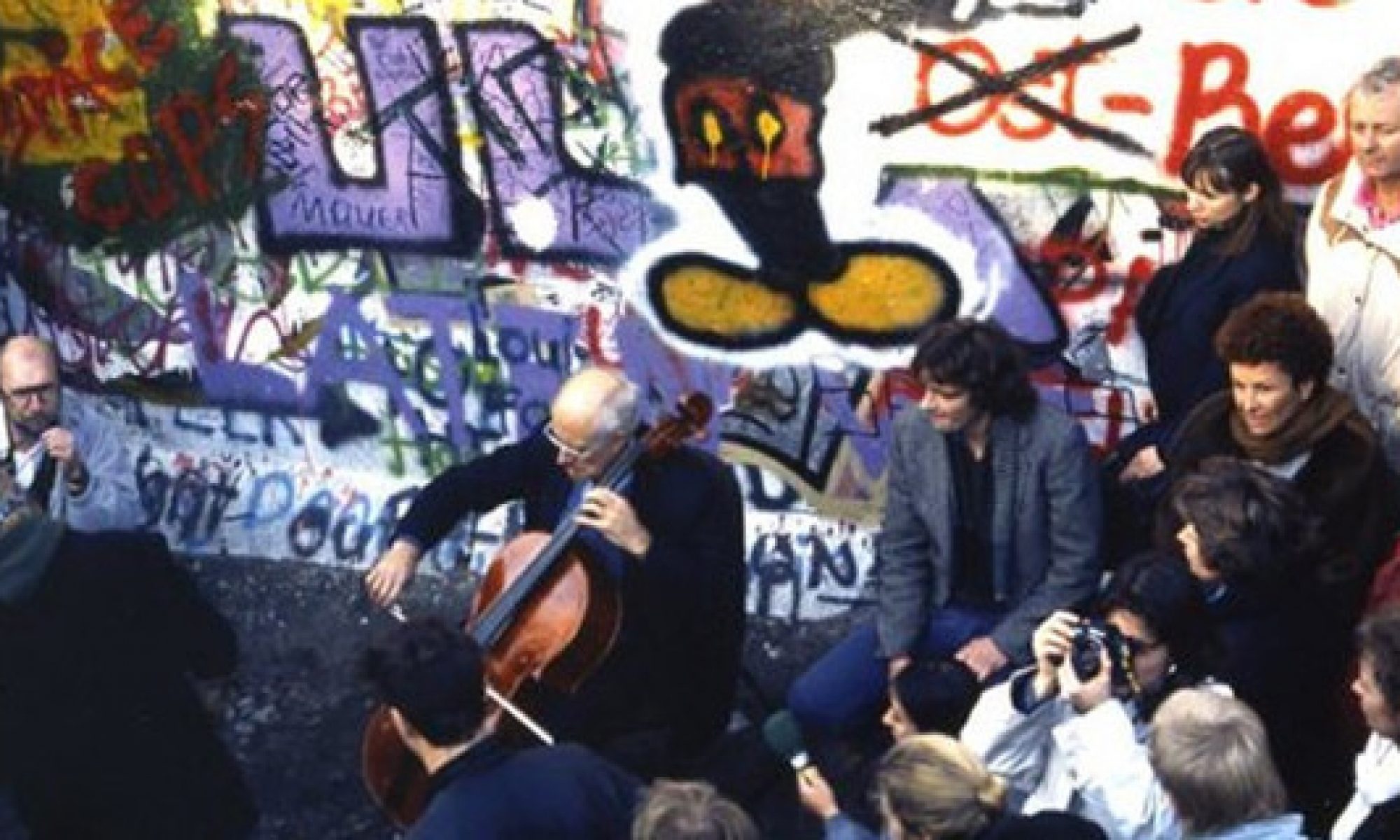Its fascinating reading how Berlin is the reason as to why we have EDM today. EDM and music festivals reveals around so many young adults today its fascinating reading where it all started. In this class we have read about how other countries have seen our culture and used it as there own. Finally we see how us Americans have gotten something from another country and inserted it into our lives today. Berlin started off with there night clubs full of DJ’s on the weakens to having huge music festivals around the world. All this started in one place across the ocean.
Train Tracks in Calais
The video Calais, September 2015 – The Syrian poet – “Britaniya, Britanya” shows migrants walking along train tracks. Calais is a major hub for trains and industry, and its port used to be thriving. The Chunnel which is the train/tunnel from London to mainland Europe cuts right through Calais, and it has lowered the travel time between locations exponentially. Merging borders, the Chunnel connects the two localities and people. As the migrants walk along the train tracks, they bring attention to the fact that citizens of Europe can easily travel wherever they want, but because the migrants were driven from their homes, they do not have that freedom. The United Kingdom refused to accept migrants from Calais which is already struggling from a seasonal economy.
When the speaker narrates over the footage of the migrants, he has struggle in his voice, but laughter from the other men accompany it. He has pain and hurt in his voice. The refugee situation in Calais was not unusual, and most European cities are figuring out ways to provide asylum and support for refugees and migrants. The music that the refugees bring with them adds to the culture of the areas as they slowly assimilate and merge in the culture.
Technotourism and Saharawi Refugee Camp Music
After reading this article I realized that I was an undiagnosed technotourist. I’ve never traveled to Berlin, but I have heard of it’s great electronic music scene and would like to experience it sometime.
The music and the people seem to be the two largest attractions. Berlin also seems to be one of the most lively techno-tourist locations, although techno-tourism can be a lucrative industry for any host city. Berlin is an attractive city for not only historical tourists, but those who want to experience the music scene as well. I thought Garcia was right when he said Berlin was a “special case.” The city is attractive for loud music but not without the noise complaints of those living within the city. It highlights the cross between the two groups in Berlin – those involved in the electronic music scene, and those who aren’t.
The rise of techno tourism popularity seems to be analogous with a younger generation who are more cost-conscious and strive for experiences over materials. These people have really done everything they can to keep costs low, from booking flights months in advance, to avoiding all extra flight costs. Also, most tourists have connections to places to stay, but not all. Those without usually stay in more modest housing in hostels.
The reading on the Saharawi refugee camps in western Africa was interesting to me because it highlights the post-colonial world we are currently experiencing. The dust from the succession of the European colonial powers in Africa in the 20th century has not yet been settled. African nations are fighting for control of areas leaving hundreds of thousands without permanent homes, driven out of their homeland. Music during the revolution was voluntary and seen as a motivator for the cause – the survival of their people. It is important to the older generation that music not be paid for. The younger musicians have no problem accepting money.
t.A.T.u. You! Russia, the Global Politics of Eurovision, and Lesbian Pop Article
Julia Volkova and Lena Katina played there cards well when it came to the press. They knew exactly what the public wanted and they made sure to deliver. The fact that they used there sexuality too there advantage was smart in some ways yet inappropriate. Them pretend to be lesbian in front of the press is no okay. Unlike David Bowie, and just went with the flow of things, these girls were literally pretending to be part of the LGBTQ community. These underage girls would act sexual on stage and dress up in school girl close. They almost seems like they were the high payed prostitutes. Julia and Lena were promoting to others that its ok to be something your not. I don’t believe this was an acceptable message to be sending to others around the world.
Eurovision Song Contest
The Eurovision Song Contest was put together with good intentions, as a way to unite the countries of Europe in the post-war period. The competition was a way to showcase the talent and culture from individual countries, and give them a major platform. This contest is truly a show of the power of music: due to the fact that there are virtually no material prizes, simply just the declaration of being the winner. It is amazing that this competition been able to prosper on for this long with high participation and the attention that it gets.
Although, originally this contest was a way to unite countries all across Europe in the post-war period, more specifically to create common ground between the East and West, it is apparent that this competition has a bias towards Western European Countries. The countries with the most winners goes as follows: Ireland (7 times), and France, the UK, Luxembourg, The Netherlands (5 times). (Eurovison.tv) This is not to say that there have not been non-western European Winners, but it is still valid to point out this fact. There is also an apparent western bias with the “Big Five”. Germany, Italy, France, The UK and Spain are automatically granted qualifications for the finals due to their major financial contributions to the EBU. (Vuletic 12) It seems unfair to include something like this in a contest, especially due to the fact that many countries do not have the same financial security that would allow them to make major financial contributions to the cause. What are some scenarios that could have stopped the creation of a western bias? Or was it unavoidable?
The ESC has also become a platform for political messages to be conveyed especially when there is conflict between participating countries. A recent example is the conflict between Russia and Ukraine with the Crimean Peninsula. The 2016 winner, Jamala, representing Ukraine, sings about the deportation of Crimean Tartars in 1944 which directly impacted her family. Since there was an active issue about the annexation of the Crimean Peninsula, the Eurovision council banned flags that do not come from the official country participants in the arena. This included a ban for flags like the Crimean Tatars to be in audience, and only the Ukrainian flag was allowed by her Crimean Tatar supporters. What does an act like this say about music and politics? Was it ever possible for a contest like this to avoid the inclusion of politics and simply be a music contest?

